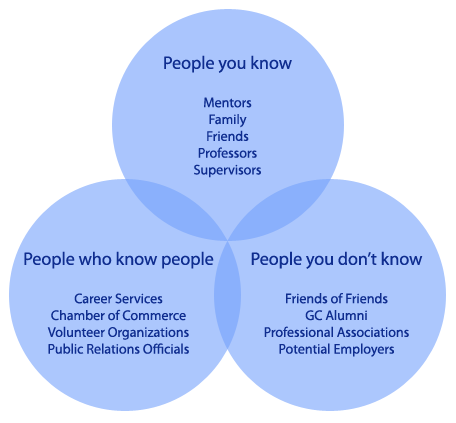Building Relationships
Building relationships takes time and effort. It is not a quick chat to someone you meet at a seminar and then get to do business with. By the same token a well-developed relationship can last years and have a mutual benefit to both parties in the years to come.
Listening
Listening is probably the highest respe3ct one can pay to another. Hearing what they say and acknowledging them so they now that you have heard them is good communication.
Communication is not just what you talk about. It is also how you talk and listen to other people. Communication should be two way. Showing genuine interest in the other person and their business. Finding out what services and benefits they offer can be just as important as telling them what you have to offer. After all, they just might have something that you want to need. It works both ways.
You can spot opportunities this way. Find out what customers are they looking for, what contacts would be useful for them. Find out how you can help them and spot opportunities for them.
Whether you are with friends and family or work colleagues, listen to what problems they have. Do you know someone who can solve that problem for them, providing them with a business opportunity?
Share your contacts with others. The names and details of contacts you trust and are reputable. Introduce people to each other. Build a reputation as someone with great contacts.
Exceed expectations
Good service is giving what is expected. Great service is giving more than expected. Exceed expectations. The way to happiness for businesses is in keeping customers happy. The way to keep customers (emphasis on KEEP) is to exceed their expectations. Give more than they expect.
Look at customer service from the customer’s point of view, what level of service does the customer expect or want?

THE CUSTOMER EXPECTS NOTHING LESS THAN PERFECT SERVICE OR THE BEST PRODUCT YOU CAN DELIVER.
The customer always expects the best regardless of the product or service offered. The customer does not expect to receive second best service. How many times have you jumped on a plane where it is announced the pilot was one of the second best pilots for the day? Or gone into a supermarket to buy your food and deliberately selected something that was half opened and shoddy looking and close to or past its use by date? Not very often I’m sure.
The New York Times best-selling author Steven Levitt wrote an article about how United Airlines turned him into a customer for life in a couple ways. Steven was running late, and unlike other airlines, they actually saved his seat until the last second. On another occasion, United Airlines called him and informed him that his flight was delayed by a few hours, and they saw that he was in the airport. The call went like this: “I see that you’re at the airport and your flight is delayed a few hours. A seat opened up on an earlier flight, so I grabbed it for you in case you wanted it. It leaves in 40 minutes, so you’ll have to hurry.” These two events, Levitt explains, turned him into a life-long customer of United Airlines.
And another customer, “I had a fault on my phone line so I reported it to my service supplier, who got onto BT Open reach to get the fault fixed. I reported the fault on the Friday morning, my service supplier’s customer service called me back 5 times on the Friday to let me know how they were proceeding with my fault, the fault was fixed on the Saturday and I got 3 calls the next week from my company just checking that everything was working properly again. I considered that brilliant service.”
It can be a profound change of attitude for some companies to move from giving the ‘irreducible minimal’ needed to finding ways of giving more than expected in order to retain customers. Guess which produces the most loyal customers and best results?
This applies in no small measure to your contacts and developing relationships. Treat them as customers, even if they are not. In reality they are. Customers who have not bought your product or service yet.
Gaining trust and confidence
If a potential contact does not trust you or have any confidence in you then they will never be a contact and a relationship will never develop so how do you gain trust and confidence?
Trust is a firm belief in someone or something. What can you do that would foster trust in you by another? The first and foremost way to gain trust is to demonstrate honesty and openness. Being you and not putting up a false image of yourself. People do not buy from the first person they contact. They buy from people they can trust. Building rapport and demonstrating credibility as the relationship develops. Three areas can help with building trust.
1. Communication with good quality listening and
2. Developing a repport with someone and genuinely likling them and appreciating them as an individual
3. Knowing about the person you are developing a relationship with and having them know you very well also.
These three factors built up together will encourage a greater understanding in the relationship and bring you closer together were trust and credibility will develop. Building trust does not stop at mere introductions or getting acquainted with someone. It extends further. It develops more over time and is, to be honest, directly proportional to the amount of effort one puts into the relationship. One might gain a small sale out of a relationship after a period of time. This is not the time to relax. This is the time to continue developing the relationship and the trust factor by providing excellent customer service and committed demonstrations of honestly and reliability.
Building rapport
Having a genuine and not false interest in someone is the first step to building rapport. When a person has more rapport with you they will want to know more about you and the level of communication increases, they find you more interesting and a relationship is built.
Here are some useful hints on building rapport with another.
1. Make eye contact and smile
2. Introduce yourself using your first name only and politely ask theirs
3. Repeat their name. Apart from fixing it in your memory, it always makes people feel good hearing their name
4. One can start by asking natural questions, such as ‘have you been to these events before?’ ‘who do you know here?’ and of course ‘what do you do?’
5. Look for ‘ideas or interests in common’ to talk about. Perhaps there are people you know in common, or who work in the same industry or your businesses are related
6. Ask further questions related to what the other person has said which demonstrates you are listening and that you are interested in what they are saying
7. Listen and show that you are listening.
8. Build on what they have said e.g. “Yes, I can see how that would be challenging. I’ve had a similar situation myself. If it helps at all, I would be happy to share how I handled it…”
9. Ask for their business card and make related comments “Ah yes, I have heard of your company before. How long have you been established?”
10. Always keep your comments positive
11. ‘Mirror’ their body language. This is one of the most interesting business networking skills – research has shown that people form closer bonds to those that mirror their body language. However, do not try to copy everything. If the person has a ‘tic’ for example, I strongly suggest NOT mirroring that tic. If the person is aware they have a tic they may consider you are poking fun at them. If they are not they may think there is something wrong with you. Practice on friends and relations if this aspect is unfamiliar with you and see what results you get.
In The Basics of Business Networking – Part Five We conclude our look at Business Networking.


